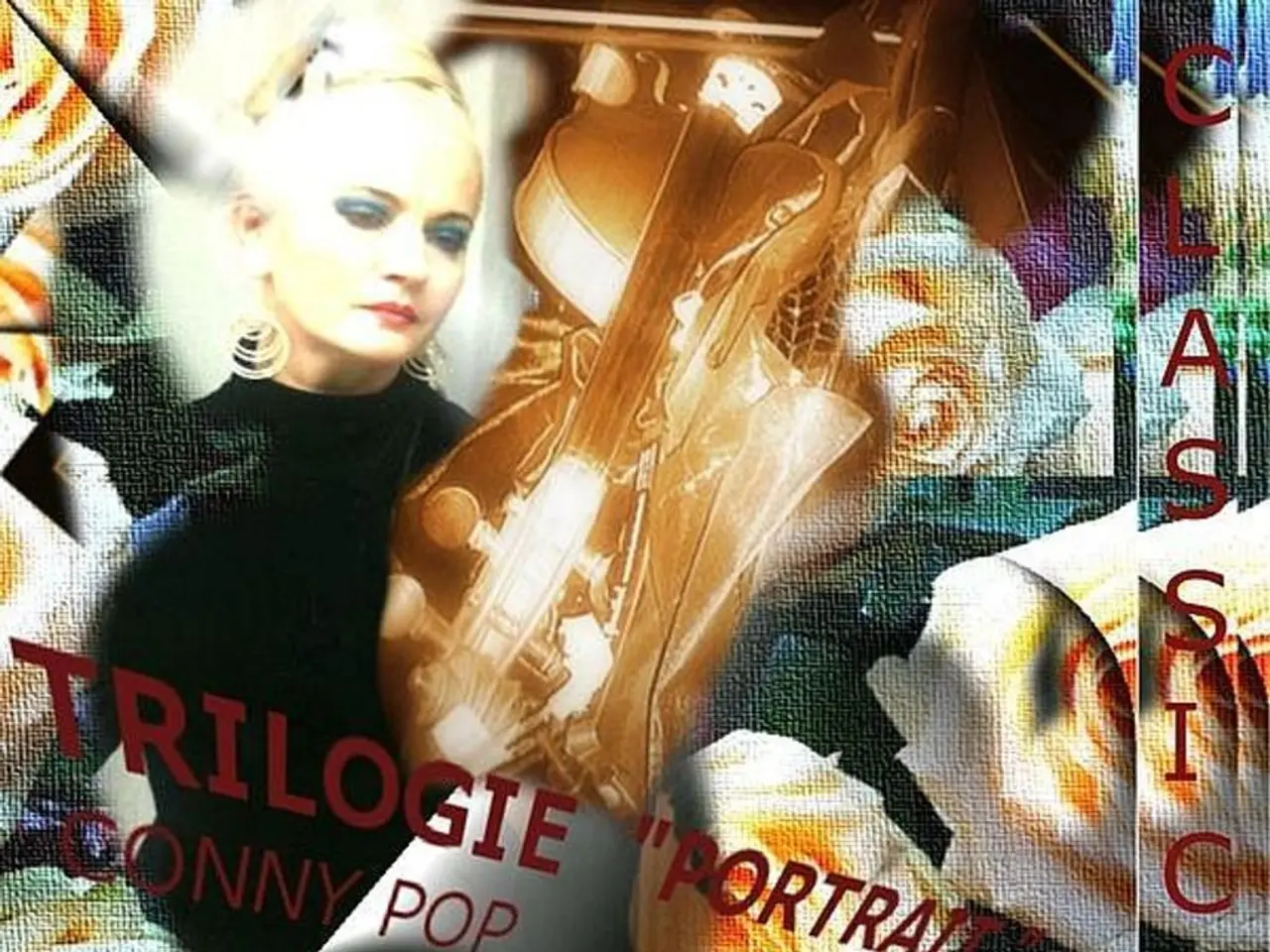Essential Tracks and Melodies Worth Experiencing at Least Once During Your Lifetime
==========================================================
In the realm of music, there are certain compositions that have left an indelible mark on people's lives and continue to resonate across generations. These songs, spanning genres and decades, offer a unique blend of cultural influence and emotional resonance.
Claude Debussy's "Clair de Lune" (1905) evokes a summer night lit by the moon, with delicate nuances creating an impression of floating. On the other hand, David Bowie's "Space Oddity" (1969) takes listeners on a journey through space as it tells the story of a solitary astronaut drifting out of range.
Ella Fitzgerald & Louis Armstrong's "Dream a Little Dream of Me" (1950) is a love dialogue over a slow waltz tempo, with velvety and gravelly voices intertwining. Meanwhile, Pink Floyd's "Time" (1973) questions the inexorable passage of days.
Simon & Garfunkel's "The Sound of Silence" (1964) is a song about dismay in a world saturated with noise but devoid of meaning. Happy End's "Kaze wo Atsumete" (1971) captures the essence of an urban summer in 1970s Japan, with a simple and sweet melody.
The Beatles' "A Day in the Life" (1967) is a two-movement tapestry with an instrumental bridge. The Beach Boys' "God Only Knows" (1966) is a testament to the Beach Boys' genius, with intricate harmonies and orchestration, and a love letter to music itself.
Neneh Cherry & Youssou N'Dour's "7 Seconds" (1994) mixes English, French, and Wolof to celebrate resilience against divisions, with Senegalese mbalax and purified pop production.
Some of the most iconic songs in music history include Queen's "Bohemian Rhapsody" (1975), a hybrid work with piano, opera, and rock elements, known for its unique structure and enduring cultural impact. John Lennon's "Imagine" (1971) is a timeless anthem for peace and hope that resonates deeply across generations.
Bob Dylan's "Like a Rolling Stone" (1965) is celebrated for its lyrical depth and influence on rock music. Michael Jackson's "Billie Jean" (1982) defined pop music with its iconic bassline and groundbreaking music video, solidifying Jackson's superstardom.
Whitney Houston's "I Will Always Love You" (1992) is a powerful vocal performance that became a best-selling single and cultural touchstone, originally written by Dolly Parton. Aretha Franklin's "Respect" (1967) is a transformative cover that became an anthem for female empowerment and civil rights.
The Beatles' "Here Comes The Sun" is their most streamed song, cherished for its uplifting melody and positive message. Consuelo Velázquez's "Bésame Mucho" (1940) is a Mexican romance captivating with the sweetness of its melody and the intensity of its interpretation.
Grandmaster Flash & the Furious Five's "The Message" (1982) brings rap into the era of social narrative, describing harsh life in disadvantaged neighborhoods. Bob Marley's "Sun Is Shining" (1973) is a reggae song under the sun of Kingston that promises light will dispel the clouds.
Amy Winehouse's "Back to Black" (2007) is a song with no provided context in the paragraph. Tracy Chapman's "Fast Car" (1988) is a song about a dream of escape from stifling constraints.
Los Incas' "El Condor Pasa" (1963) is a melody that descends from the Andean peaks with the morning mist, played on pan flutes, charangos, and guitars. Astrud Gilberto, João Gilberto, and Stan Getz's "The Girl from Ipanema" (1964) is an aural postcard of a stroll along a Brazilian beach, with soft vocals, nonchalant phrasing, and silky saxophone.
Jeff Buckley's "Grace" (1994) has intense vocals and dramatic guitar arpeggios, creating a world that's skin-deep. Nirvana's "Smells Like Teen Spirit" (1991) is a grunge song that redefined rock for a generation.
Led Zeppelin's "Since I've Been Loving You" (1970) is an electric blues, tense like a string ready to snap, with intense vocals, guitar solos, and drums. Robert Johnson's "Crossroad" (1937) is a legendary blues telling the story of a meeting with the devil at a Mississippi crossroads, with slide guitar and sharp, responsive vocals.
Finally, Fela Kuti's "Zombie" (1977) is an incandescent afrobeat, carried by an explosive brass section and relentless percussion, with satirical lyrics targeting Nigerian military rigidity. These songs, each unique in their own right, offer a captivating journey through the annals of music history.
During an in-flight entertainment system playlist curation, one might find a mix of music genres and legendary compositions, such as Queen's iconic "Bohemian Rhapsody" and the captivating Afrobeat rhythm of Fela Kuti's "Zombie". This mixtape, embodying a rich lifestyle and diverse entertainment, would provide listeners with an engaging musical journey from classical pieces like Debussy's "Clair de Lune" to modern hits like Amy Winehouse's "Back to Black".






